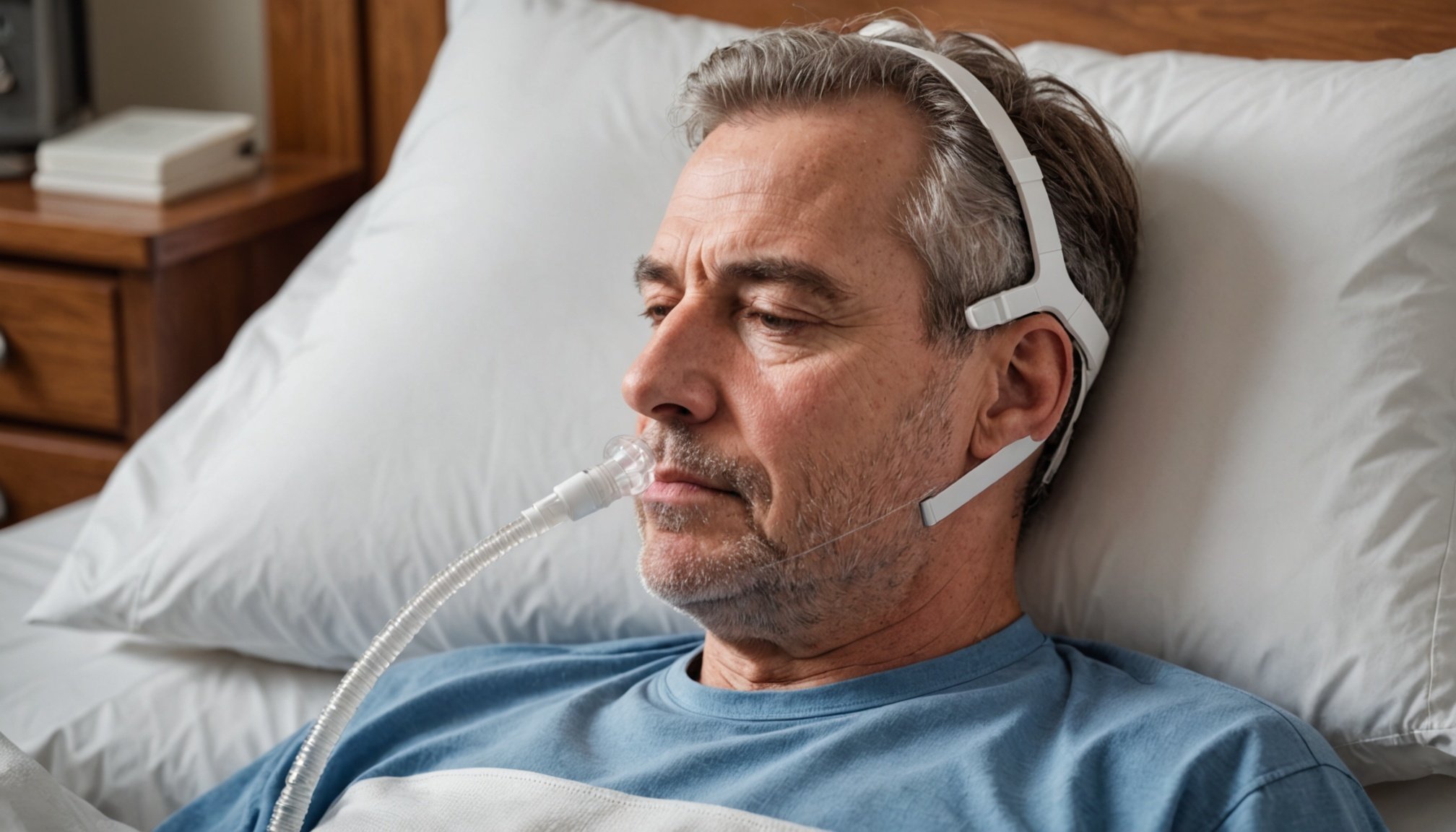Exploring the Impact of CPAP Therapy on Cognitive Abilities in Sleep Apnea Patients
Understanding Obstructive Sleep Apnea (OSA)
Obstructive Sleep Apnea (OSA) is a common sleep disorder characterized by repeated interruptions in breathing during sleep, due to the partial or complete obstruction of the airway. These interruptions, known as apneas, can occur hundreds of times a night, leading to fragmented sleep and a range of daytime symptoms, including excessive sleepiness, mood disturbances, and cognitive impairment.
The Cognitive Impairment Associated with OSA
Cognitive impairment is a significant concern for patients with OSA. The repeated episodes of apnea and the resulting oxygen desaturation can affect various aspects of cognitive function, including attention, memory, and executive function. Studies have shown that OSA patients often experience difficulties in concentration, memory recall, and decision-making, which can impact their daily activities and overall quality of life.
Also to read : Exploring the Newest Breakthroughs: How Virtual Reality Transforms Pain Management Effectiveness
How CPAP Therapy Works
Continuous Positive Airway Pressure (CPAP) therapy is the gold standard treatment for moderate to severe OSA. CPAP works by delivering a constant flow of air pressure into the airways to keep them open, thereby preventing the obstruction that causes apneas. This continuous air pressure ensures uninterrupted breathing throughout the night, improving sleep quality and reducing the symptoms associated with OSA.
Impact of CPAP on Cognitive Function
Improvement in Daytime Alertness and Mood
CPAP therapy has been shown to significantly improve daytime alertness and mood in patients with OSA. By ensuring uninterrupted sleep, CPAP helps restore normal sleep patterns, which in turn enhances cognitive function. Studies have demonstrated that CPAP treatment can improve daytime sleepiness, reduce irritability, and enhance overall mood, all of which are crucial for cognitive health.
Have you seen this : How Does Extended Antidepressant Use Affect Bone Density in Postmenopausal Women? Insights and Implications.
Enhancement of Cognitive Abilities
Research has consistently shown that CPAP therapy can improve various aspects of cognitive function in OSA patients. Here are some key cognitive areas that benefit from CPAP treatment:
- Attention and Concentration: CPAP therapy helps in improving attention and concentration by reducing the sleep fragmentation and oxygen desaturation associated with OSA.
- Memory: Studies have indicated that CPAP treatment can enhance memory recall and learning abilities, which are often impaired in OSA patients.
- Executive Function: CPAP therapy has been linked to improvements in executive function, including better decision-making and problem-solving skills.
Here is a detailed list of cognitive improvements associated with CPAP therapy:
- Reduced Sleepiness: CPAP significantly reduces daytime sleepiness, a common symptom of OSA.
- Improved Attention: Enhanced attention and concentration due to better sleep quality.
- Enhanced Memory: Better memory recall and learning abilities.
- Better Mood: Reduced irritability and improved overall mood.
- Improved Executive Function: Enhanced decision-making and problem-solving skills.
Meta-Analysis and Research Findings
A systematic review and meta-analysis by the American Academy of Sleep Medicine found that CPAP therapy is effective in reducing OSA severity across the spectrum of OSA severity. This analysis also highlighted the cognitive benefits of CPAP treatment, including improvements in daytime alertness and cognitive function.
Practical Insights and Actionable Advice
For patients considering CPAP therapy, here are some practical insights and actionable advice:
- Adherence is Key: Consistent use of CPAP is crucial for maximizing its benefits. Patients should aim to use CPAP for at least 4-6 hours per night.
- Adjusting to CPAP: It may take some time to get used to wearing a CPAP mask. Patients should start with short sessions and gradually increase the duration.
- Regular Follow-Up: Regular follow-up with healthcare providers is essential to adjust CPAP settings and address any issues that may arise.
- Lifestyle Changes: In addition to CPAP, lifestyle changes such as weight loss, avoiding alcohol and sedatives before bedtime, and sleeping in an upright position can help manage OSA symptoms.
Addressing the “Lazy Breather” Myth
There is a common misconception that CPAP therapy makes patients “lazy breathers” by reducing the effort needed to breathe. However, this is not supported by scientific evidence. In fact, CPAP makes the diaphragm and other breathing muscles work harder in some ways, as it requires more effort to exhale against the continuous air pressure. This myth is illogical and contradicted by studies showing that CPAP improves breathing function and does not lead to complacency in breathing muscles.
Cognitive Impairment in Psychiatric Populations
OSA is often comorbid with psychiatric disorders such as major depressive disorder (MDD) and posttraumatic stress disorder (PTSD). In these populations, the cognitive impairment associated with OSA can be more pronounced. Studies have shown that treating OSA with CPAP can also improve psychiatric symptoms, highlighting the importance of addressing both conditions simultaneously for optimal treatment outcomes.
Table: Cognitive Benefits of CPAP Therapy in OSA Patients
| Cognitive Area | Pre-CPAP Symptoms | Post-CPAP Improvements |
|---|---|---|
| Attention and Concentration | Difficulty focusing, easily distracted | Improved attention span, better concentration |
| Memory | Poor memory recall, difficulty learning | Enhanced memory recall, improved learning abilities |
| Executive Function | Impaired decision-making, problem-solving | Better decision-making, enhanced problem-solving skills |
| Daytime Alertness | Excessive daytime sleepiness | Reduced sleepiness, improved alertness |
| Mood | Irritability, mood swings | Improved mood, reduced irritability |
CPAP therapy is a highly effective treatment for OSA, offering significant cognitive benefits to patients. By ensuring uninterrupted sleep and improving oxygen saturation, CPAP enhances various aspects of cognitive function, including attention, memory, and executive function. It is crucial for patients to adhere to CPAP treatment and make complementary lifestyle changes to maximize the benefits. Addressing the myths surrounding CPAP, such as the “lazy breather” misconception, can also help in promoting better adherence and understanding of this vital treatment.
In the words of Dr. Susheel P. Patil, MD, PhD, “CPAP therapy is effective in reducing OSA severity as measured by the AHI or RDI, across the spectrum of OSA severity,” highlighting its broad applicability and efficacy.
For patients with OSA, the journey to improved cognitive function and overall health begins with CPAP therapy. By embracing this treatment and making informed lifestyle choices, individuals can significantly enhance their quality of life and cognitive abilities.











